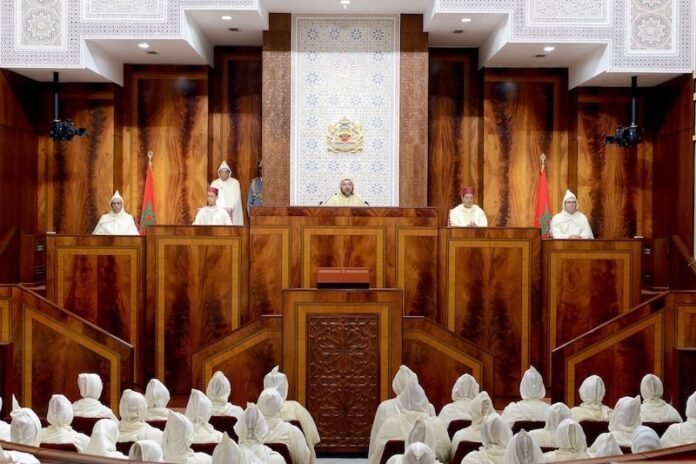At the opening of Morocco’s 2025 parliamentary session, King Mohammed VI delivered a speech that felt less ceremonial and more like a national audit.
Firm, direct, and urgent in tone, the address set a clear challenge to the government and parliament: make reform real, visible, and equitable.
No Development Without Inclusion
The monarch’s message was unequivocal:
“There should be no contradiction or competition between major national projects and social programs, since both aim to develop the country and improve citizens’ living conditions.”
This is more than a policy statement; it’s a correction of priorities. The King is signaling that the era of grand projects without tangible social impact is over.
Efficiency as the New Measure of Legitimacy
The speech’s sharpest line was unmistakable:
“Complacency in the effectiveness of public investment is unacceptable.”
This sentence alone reframes political accountability. What matters now is not political rhetoric, but measurable progress.
The King’s message echoes the frustration of a population — especially youth — tired of reports and delays: “deliver, don’t explain.”
A New Generation of Territorial Development
Calling for a “new generation of territorial development programs,” the monarch underscored the need for a cultural shift in public administration — from bureaucracy to performance.
“The great transformation we seek requires a real change in mindsets and a genuine culture of results.”
The vision is ambitious: decentralization, data-driven governance, and local empowerment.
But are institutions ready to adapt before the clock runs out on the current legislature?
The Hidden Dialogue with Generation Z
Beneath the institutional tone, the speech speaks directly to Generation Z, the digital youth expressing disillusionment online.
When the King calls for “mobilizing all energies” and “leveraging digital technologies,” he’s appealing to their creativity, not their silence.
Yet the question lingers: will this generation, skeptical of official promises, see enough change to renew its faith in public life?
Social Justice as a Strategic Imperative
“Social justice and the fight against territorial disparities are not empty slogans, but a strategic and existential priority.”
By framing equity as an existential issue, the King transforms it from a moral goal into a political mandate.
Social justice is now positioned as the backbone of national stability.
Three Territorial Priorities
The King identified three urgent areas:
-
Mountain and oasis regions — 30% of national territory, needing an integrated development model.
-
Coastal zones — to balance rapid growth with environmental protection and a sustainable blue economy.
-
Emerging rural centers — to ease urban pressure and bring services closer to citizens.
Together, these pillars sketch a vision of a balanced Morocco — united in progress, diverse in opportunity.
Between Implicit Critique and Conditional Trust
The King’s tone was firm but not confrontational. His message: reform is still possible, but trust must be earned.
By insisting on “seriousness, vigilance, and responsibility,” he redefines patriotism as measurable service to citizens.
Conclusion: The End of Political Inertia
The 2025 royal speech is not just an institutional ritual; it’s a moment of national recalibration.
As Generation Z demands results and meaning, the monarchy positions itself once again as the guarantor of movement — against complacency, and against time.
But the open question remains:
Will Morocco’s leaders transform this vision into reality before the next generation loses patience altogether?


